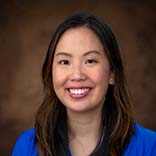Eradicating Colorectal Cancer by Improving Screening and Reducing Disparities
The Population Health Colorectal Cancer Screening Program is a collaborative effort between Fred Hutch and UW Medicine. Our goals are to eradicate colorectal cancer by improving screening, reducing racial, ethnic, and socioeconomic disparities, and improving follow-up for those with abnormal non-invasive screening tests. We do this through quality improvement, research, community engagement, and informing local and national health policy.
Key Priorities

Improving Access for Screening

Tailored Interventions

Community Education and Awareness
Improving Access for Screening
By using mailed stool-based colorectal cancer screening tests (fecal immunochemical test - FIT), our team is improving access to colorectal cancer prevention.
Early Detection and Prevention Research
Our research focuses on the early detection and prevention of colorectal cancer through increased screening, especially among medically underserved populations. Our current projects include evaluations of novel interventions to increase adherence to colorectal cancer screening and follow-up of abnormal results.
Recent News
More News>Dr. Rachel Issaka receives the Kathryn Surace-Smith Endowed Chair in Health Equity Research
Flexible funding will further physician-scientist’s work in colorectal cancer and health inequities
Fred Hutch News Service | Feb. 2, 2022
The COVID cancer effect
Oncologists are grappling with predicting—and mitigating—the effects of the pandemic
Scientific American | Dec. 1, 2021
Which colon cancer screening is best?
Colon cancer screening can save lives. There are several types of screening options, but any screening is better than none.
U.S. News & World Report | Aug. 27, 2021
Study ID’s major roadblocks to follow-up colon-cancer care
Lack of both transportation and interpreters can stall a clinic visit after an at-home test raises a red flag.
UW PostScript Blog | Aug. 10, 2021

“Screening is a way to not only prevent disease but reduce racial and economic disparities. We need to close that gap so that every citizen can benefit from the advances in cancer care and prevention.”
Dr. Rachel Issaka, Program Director
Contact Us
